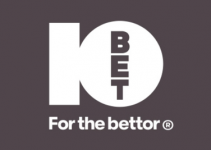Back in April I wrote about how the Gambling Commission was considered banning credit cards for betting and it now appears as if that idea has been given further backing by the Labour Party. The country’s opposition has used their party conference in Liverpool to announce their plans to crackdown on what the Labour deputy leader Tom Watson has referred to as a ‘public health emergency’ in the form of the country’s ‘epidemic of gambling addiction’.
As well as banning the use of credit cards to place bets, Labour have vowed that they would also outlaw gambling adverts during live sporting events. It’s all part of the political party’s coordinated attack on the gambling industry, which Tom Watson has long been against. It comes on the back of a year-long consultation that the Labour Party have carried out alongside charities, gambling organisations, specialists with regards to gambling addiction and some of the addicts who have suffered.
Credit Card Bans
 As mentioned in the previous piece, betting with credit cards often sees people who do not have a lot of disposable income put themselves in further debt by using the method to place their bets. It’s not a sensible method of betting for a number of reasons, not least of which is the fact that it is treated as a cash advance and so you will incur both charges and interest on the money used. That’s why Labour would promise to outlaw their use, attempting to tighten up gambling legislation that Watson believes is currently ‘not up to the job’ of protecting those vulnerable to addiction.
As mentioned in the previous piece, betting with credit cards often sees people who do not have a lot of disposable income put themselves in further debt by using the method to place their bets. It’s not a sensible method of betting for a number of reasons, not least of which is the fact that it is treated as a cash advance and so you will incur both charges and interest on the money used. That’s why Labour would promise to outlaw their use, attempting to tighten up gambling legislation that Watson believes is currently ‘not up to the job’ of protecting those vulnerable to addiction.
According to the Gambling Commission’s report, released earlier this year, between ten and twenty percent of the £43 billion deposited into gambling accounts in a year were made from credit cards, which amounts to up to £8.6 billion. That figure is without even taking into account money spent in casinos or high street bookmakers. Watson said, “Debt-financed betting on credit cards is wrong. It allows people to bet more than they can afford and particularly affects gambling addicts”. Campaigners believe that the current rules allowing gamblers to use credit cards sees some mired in even more debt.
Advertising Bans
 Whilst the ban on credit cards is the headline grabbing announcement that has emerged from Labour’s conference, it is not the only piece of news regarding the party’s attempt to take on the gambling industry. As mentioned earlier, Tom Watson considered problem gambling to be a ‘public health emergency’ and Labour feel that limiting a gambling company’s ability to advertise during a match will help those most vulnerable. According to research carried out by Professor Rachel Cassidy from Goldsmiths University, gambling advertising increased six times between 2007 and 2013, with that likely to have gone up even further in recent times.
Whilst the ban on credit cards is the headline grabbing announcement that has emerged from Labour’s conference, it is not the only piece of news regarding the party’s attempt to take on the gambling industry. As mentioned earlier, Tom Watson considered problem gambling to be a ‘public health emergency’ and Labour feel that limiting a gambling company’s ability to advertise during a match will help those most vulnerable. According to research carried out by Professor Rachel Cassidy from Goldsmiths University, gambling advertising increased six times between 2007 and 2013, with that likely to have gone up even further in recent times.
Indeed, analysis found that during the World Cup in 2018 seventeen percent of all adverts that were shown during the football were from gambling companies. A representative of the National Problem Gambling Clinic, Dr Henrietta Bowden-Jones, believes that TV adverts are a large part of the reason why patents relapse after having quit gambling in the past. She said, “It is our opinion that without gambling adverts there would be a lot less risk of initiating the young and the vulnerable to gambling activities by normalising a potentially harmful behaviour”.
That is an opinion backed up by the policy institute Money and Mental Health, which said that adverts that make customers specific offers, such as getting a free bet if you register online, often leads customers to gamble more than they mean to. They said, “Their frequency and timing, such as late at night when people with mental health problems are vulnerable and more likely to respond, can create challenges to gambling responsibly”.
It’s not that Labour’s proposals would stop bookies from being able to offer odds entirely, however. The idea is that gambling companies would be stopped from advertising during matches, as well as for a specific period before and after the games themselves. They would still be allowed to offer In-Play odds and so on, but just not actively advertise what they were offering.
Taking More Responsibility
The Labour deputy leader announced that companies would also be asked to pay a compulsory levy of one percent on their gambling earnings, with that money being used to help those most in need. He said, “Gambling companies have to take more responsibility for harm caused by their products and contribute more to research and treatment. We must also face up to the negative effect the explosion in gambling advertising has had”.
That would work alongside the ability of gamblers to tell their banks to stop them from being able to make transactions with gambling companies online, thereby limiting the amount of money they’d be able to spend. Watson suggested that the Conservatives are letting the most vulnerable get themselves into worse situations by not addressing this issue themselves, saying, “The refusal of the current Government to address any of these issues is letting problem gamblers and their families down. Labour’s new policies announced today aim to build a world class framework for the prevention and treatment of problem gambling”.
It is likely that more information about Labour’s proposals will become clear as the week progresses, with the party leader, Jeremy Corbyn, showing that he’s not against football in general by attending a match between Liverpool and Southampton at Anfield on Saturday. Whilst the home side won 3-0, the politician won’t have been overly delighted, given that he’s an Arsenal supporter.



